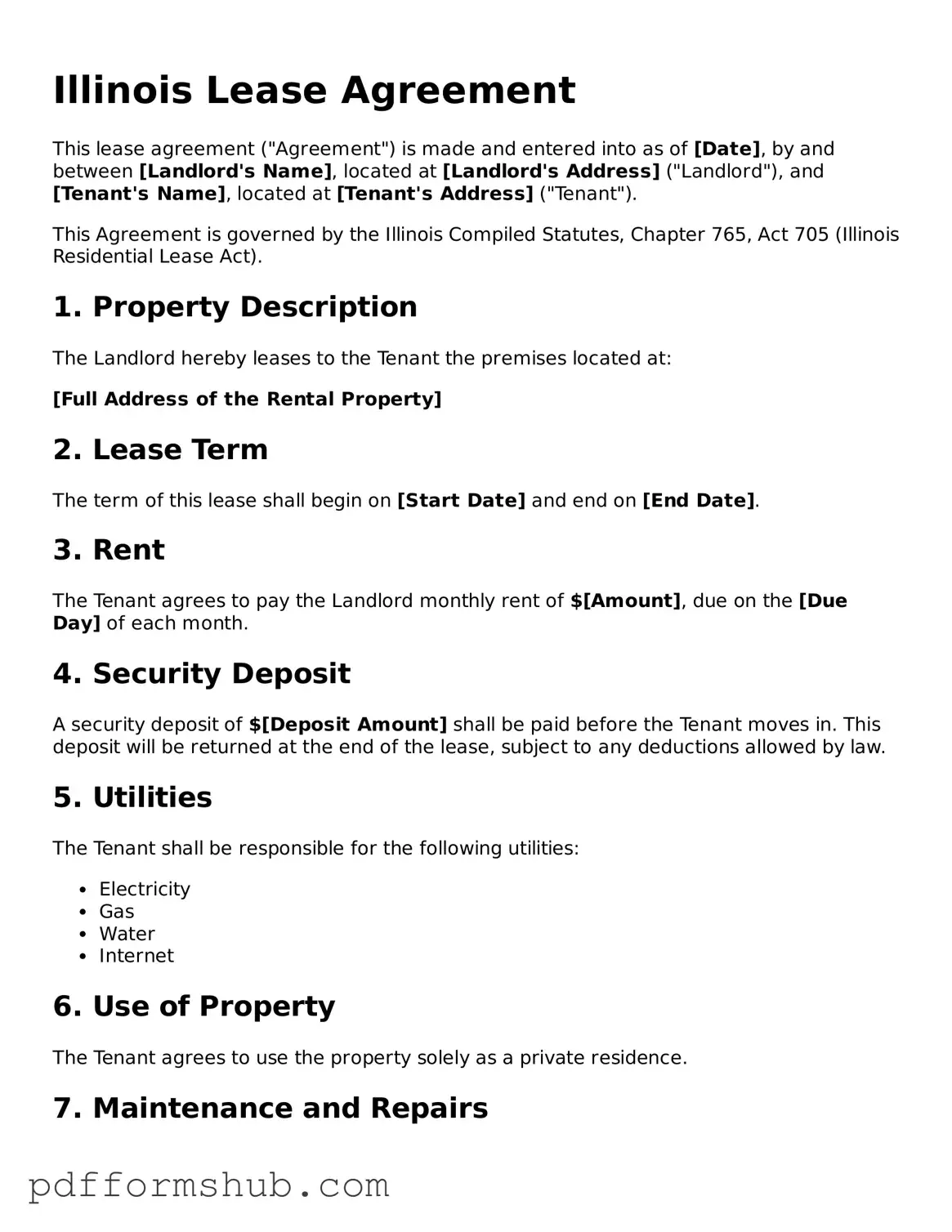Attorney-Verified Lease Agreement Form for Illinois State
The Illinois Lease Agreement form is a legal document that outlines the terms and conditions between a landlord and tenant for renting a residential property. This agreement helps ensure that both parties understand their rights and responsibilities during the lease term. To get started on your lease, fill out the form by clicking the button below.
Customize Form

Attorney-Verified Lease Agreement Form for Illinois State
Customize Form

Customize Form
or
Free PDF Form
Short deadline? Complete this form now
Complete Lease Agreement online without printing hassles.